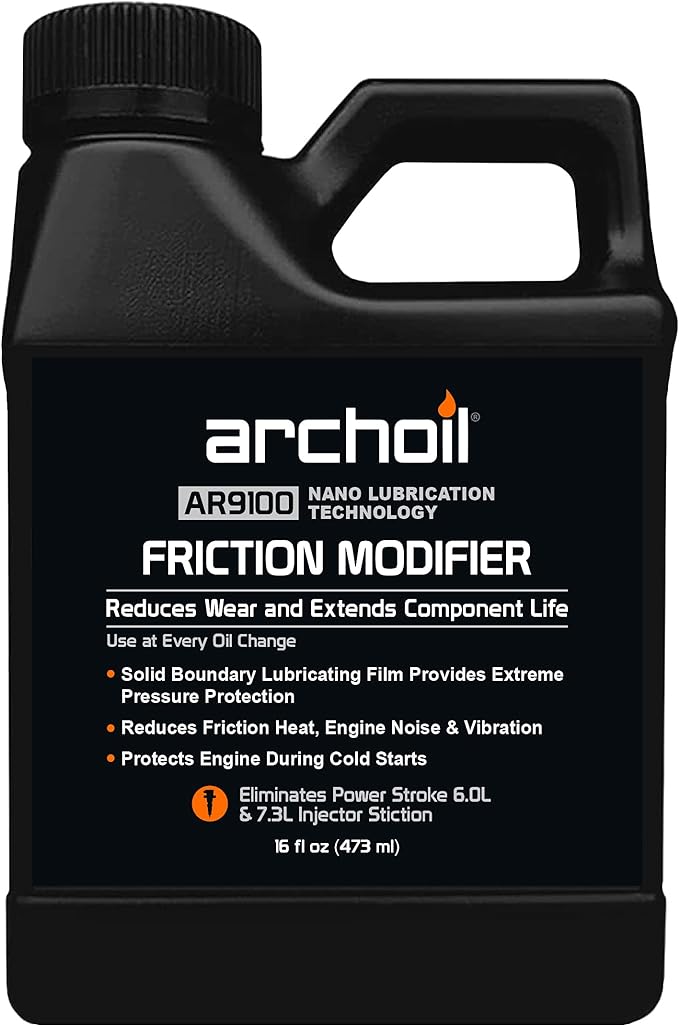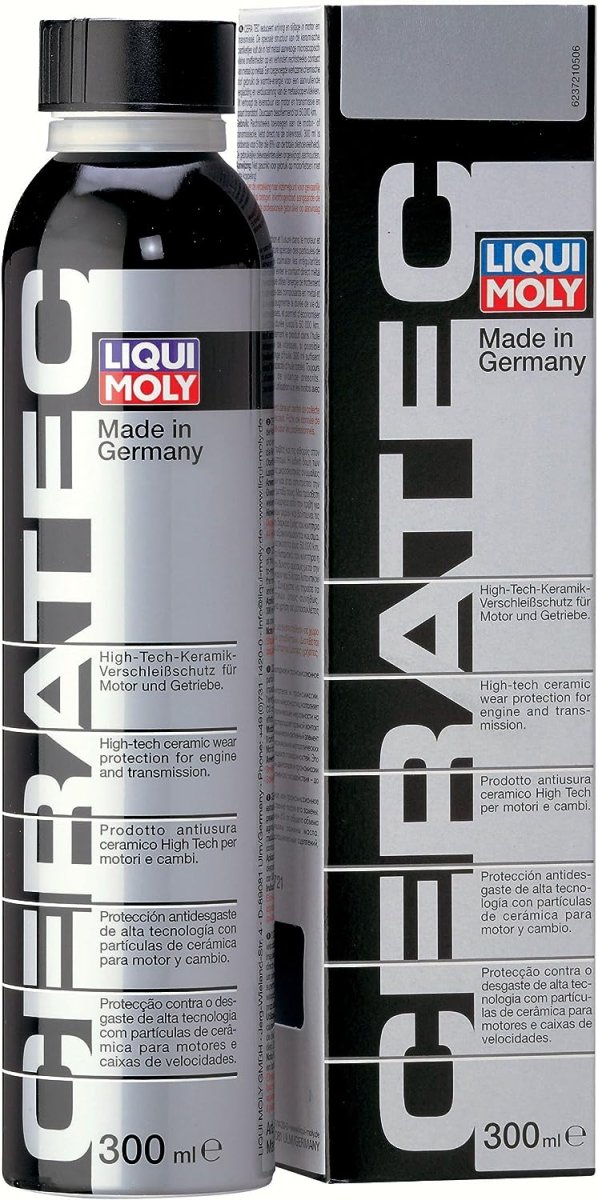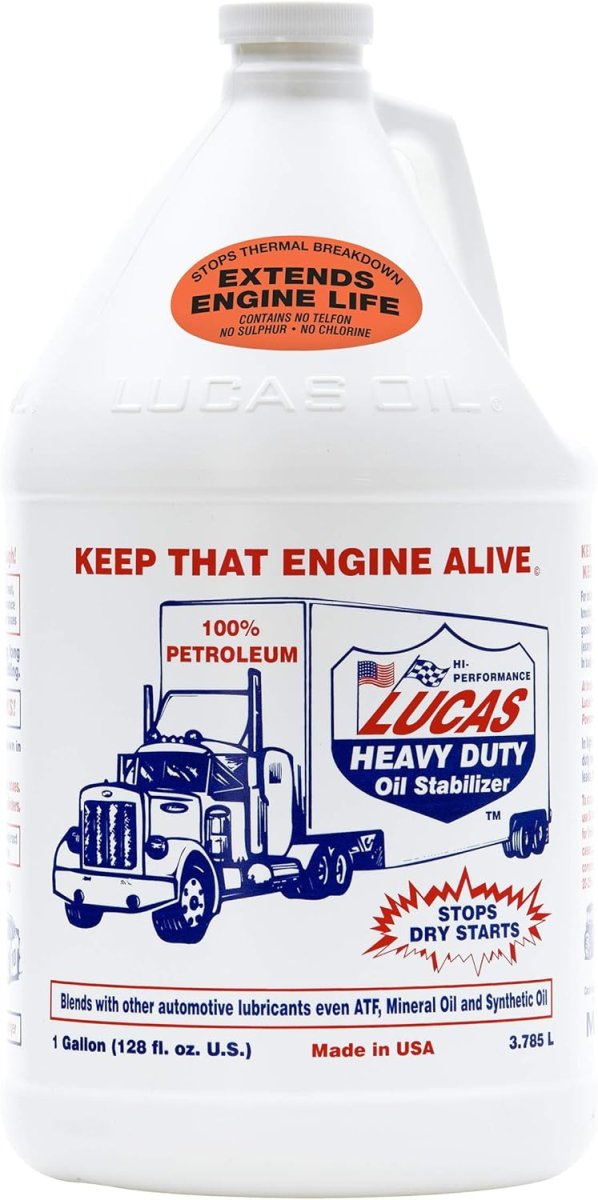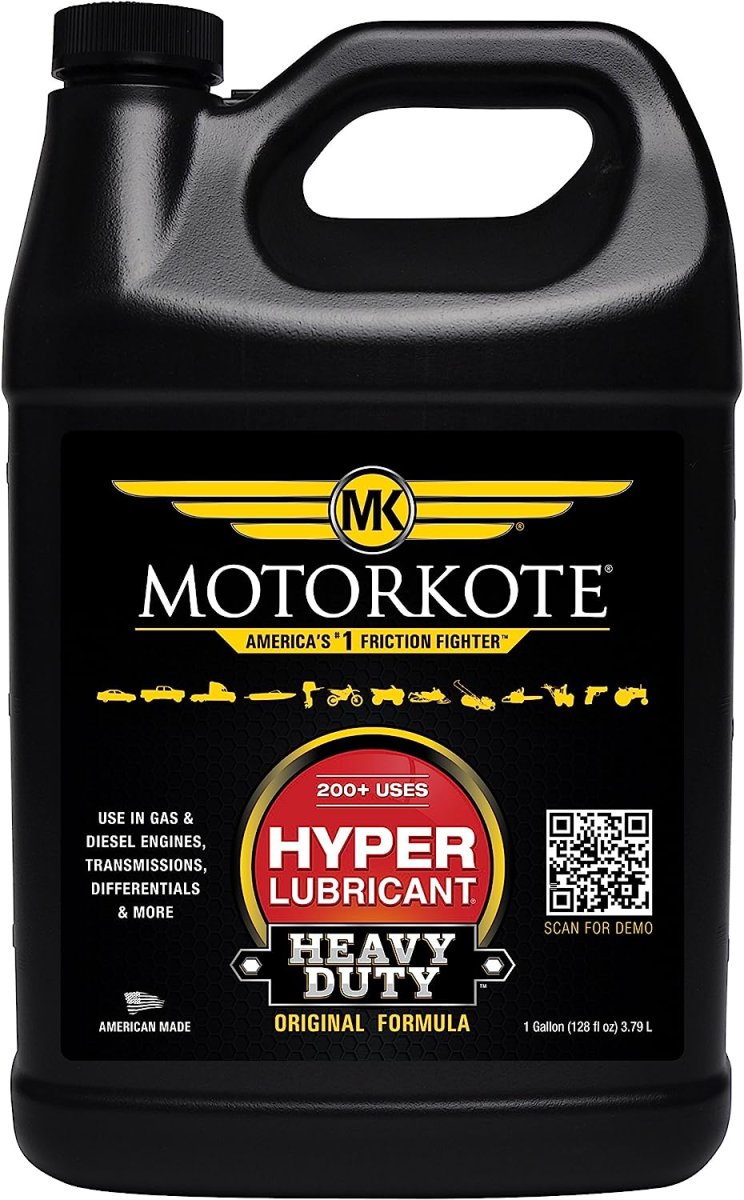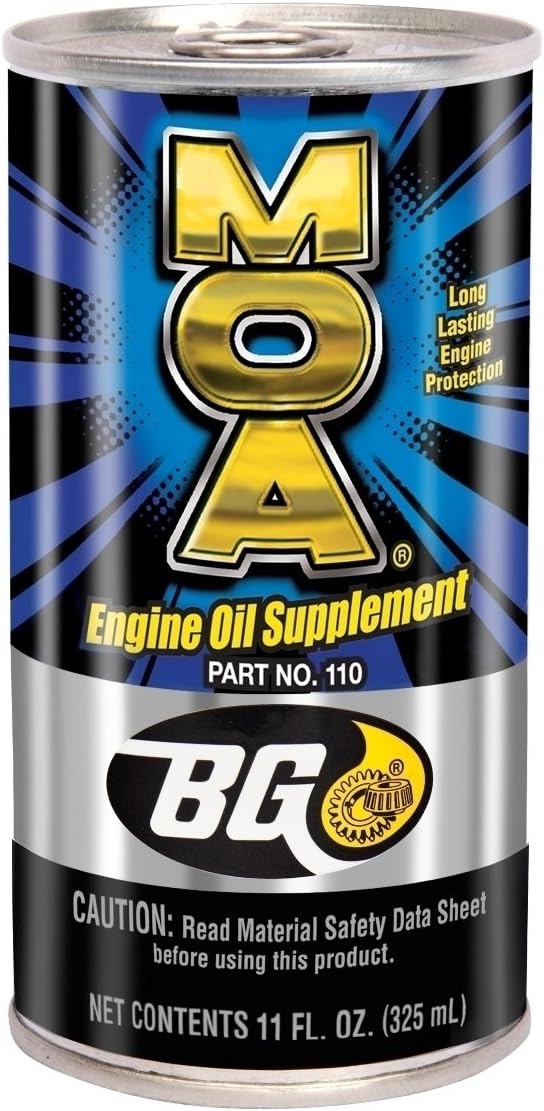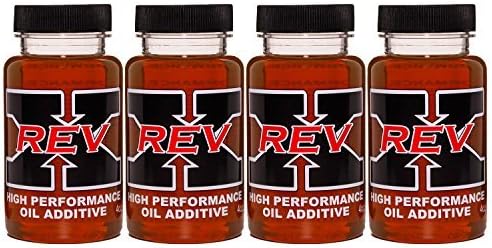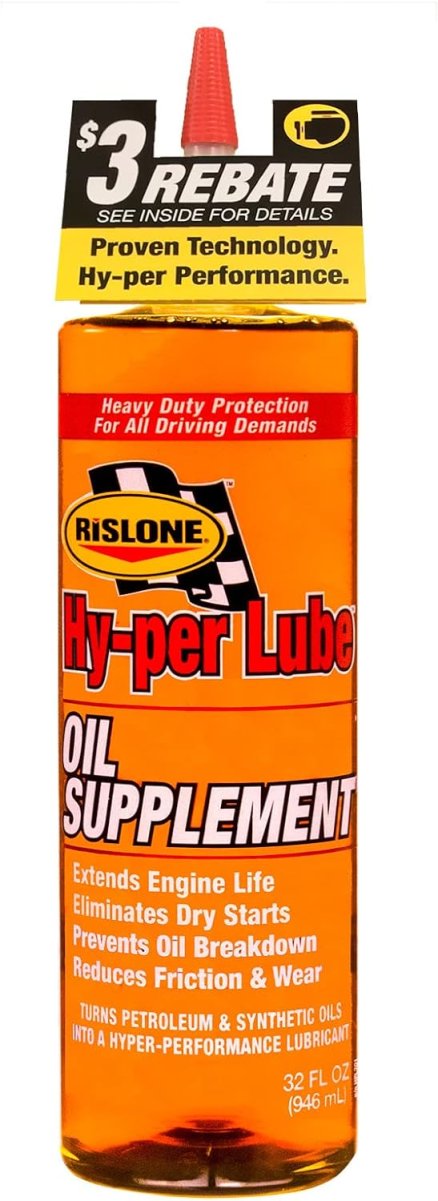We may earn revenue from the products available on this page and participate in affiliate programs. Learn more ›

You already know how critically important regular oil changes are for your car. Without them, your car’s innermost components and systems can face serious problems — and you could wind up with costly repairs you really don’t want to pay for. However, what you might not think about as regularly as your oil changes is what, exactly, your oil is doing under the hood. If you’re counting on your oil to keep your engine and all of its parts running smoothly, you might want to check in with it and see if an oil additive could help.
Oil additives, which are also called engine oil additives, can improve engine performance and even help it last for longer. Meant to protect everything from seals and gaskets while also flushing out sludge and cleaning different engine components, an oil additive can be a serious workhorse for your vehicle. And they’re incredibly easy to add right into the oil you’re already using. If you’re thinking about enhancing your engine oil’s performance with an additive, we’ve compiled a list of the best oil additives right here.
Summary List
- Best Overall: Archoil AR9100
- Best Value: Liqui Moly Anti-Friction Oil Treatment
Also Consider
- Liqui Moly Cera Tec Friction Modifier
- Lucas Oil Heavy-Duty Oil Stabilizer
- Motorkote Hyper Lubricant
- Hot Shot’s Secret Oil Additive
- BG MOA Engine Oil Supplement
- REV X High Performance Oil Additive
- Hyperlube Rislone Hy-per Lube Oil Supplement
Our Methodology
We can’t put our own hands on every item available. In these instances, we put our collective experience in journalism, research, and prior product testing to use to make our product picks. Items that are used by our own staff may get earnest endorsements as well, but we’ll never accept fees or bonuses to sell you stuff we’re not actually excited about. Affiliate revenue is always disclosed.
The Drive aggregates reviews and research from all over the internet to figure out which products are worth buying. We also put out shopping guides to help you understand how to assess the value of these things on your own. As our editorial cousins at Car Bibles say, “Knowledge is horsepower!”
Best Oil Additives: Reviews & Recommendations
Best Overall
Archoil AR9100
Check Latest PriceBest Value
Liqui Moly Anti-Friction Oil Treatment
Check Latest PriceHonorable Mention
Liqui Moly Cera Tec Friction Modifier
Check Latest PriceHonorable Mention
Lucas Oil Heavy-Duty Oil Stabilizer
Check Latest PriceHonorable Mention
Motorkote Hyper Lubricant
Check Latest PriceHonorable Mention
Hot Shot’s Secret Oil Additive
Check Latest PriceHonorable Mention
BG MOA Engine Oil Supplement
Check Latest PriceHonorable Mention
REV X High Performance Oil Additive
Check Latest PriceHonorable Mention
Hyperlube Rislone Hy-per Lube Oil Supplement
Check Latest PriceOur Verdict on the Best Oil Additives
Our pick for the best oil additive is the Archoil AR9100. It is versatile, and it can solve Powerstroke cold start issues. Another top-quality selection that is cheaper than most other options is the Liqui Moly Anti-Friction Oil Treatment.
Types of Oil Additives
Antioxidants
Oxidation causes engine parts to deteriorate when exposed to oxygen. Hence, antioxidant oil additives do the exact opposite by acting like a protective layer to slow down the oxidation process and prevent corrosion of the engine parts. Also, such types of oil additives are capable of prolonging the lifespan of the engine oil.
Detergents
The objective of detergent oil additives is to get rid of impurities accumulating in the engine components. Moreover, detergents are alkaline in nature, and they’re used to neutralize the acidity level of the engine oil and avoid unwanted deposits that would otherwise form when exposed to high temperatures.
Viscosity Modifiers
When blended with regular oil, viscosity modifiers play a role to prevent the oil from becoming thinner or watery after exposure to high temperatures. Alternatively, viscosity modifiers improve oil fluidity at low temperatures, which helps to boost fuel economy and reduce wear. Most top-rated oil additives that are sold contain viscosity modifying elements.
Friction Modifiers
A friction modifier serves the purpose of decreasing the friction between metal surfaces in the engine. In retrospect, friction-reducing engine treatment indirectly enhances fuel economy and could also be used as an anti-wear agent. Most synthetic oil additives that you can find on the market will typically include anti-friction formulas.
Anti-Foaming Agents
Anti-foaming oil additive contains chemicals that inhibit foam and air bubbles in the engine oil. Otherwise, if the foam bubbles don’t burst, they would speed up the oxidation process, which would ultimately lead to corrosion. In most cases, you will need a very low concentration of anti-foaming agents to get the job done.
Pricing
- Under $10: You can easily find an array of different oil additives priced within a budget-friendly $10 or less range. Most basic additives cost around $7 in total, meaning you don’t have to spend a lot in order to get a decent, effective product that’ll really deliver.
- $10 to $50: This is the widest, most far-ranging price range when it comes to additives. You’ll find all kinds of options, from general additives to more specialized formulas, at both budget and more expensive prices.
- $50 and up: While it might seem silly to spend $50 or more on a bottle of oil additive, some of the most premium product choices can cost quite a bit. While there aren’t a ton of options within this high price range, you’ll find more unique options. Some oil additives can even reach $100 and up, though these are typically bulk products or highly specialized formulations.
Key Features
Climate Adaptability
Even though most oil additives are designed to be used during the summer or winter months, not all additives can withstand the below-zero temperatures. On the other hand, there are a few additives that would lose composure when exposed to high temperatures. The best car oil additive should be able to cope with extreme cold or hot environments.
Compatibility
Not every oil additive sold on the market is compatible with your vehicle. For instance, there are some oil treatments that would work well with synthetic oil engines. It’s very important that you check your vehicle’s manual to know what type of oil treatment you should buy. Additionally, most user manuals will tell you what type of chemicals you should avoid. The best oil additives should be compatible with almost all types of vehicles.
EPA Certification
The more eco-friendly a product is, the better it is. Usually, oil additives for older engines that are capable of reducing emissions are EPA-certified. Actually, an improved fuel economy will have lower levels of emission. The EPA certification is a green light that the oil treatment doesn’t include harmful chemicals.
Other Considerations for the Best Oil Additives
- Chemicals. Most top-notch products contain zinc or phosphorous. The zinc chemical found in oil additives serves to improve performance, and it is usually ideal for older engines. Meanwhile, a phosphorus chemical may prolong your engine’s lifespan by reducing friction. If you find a product with both zinc or phosphorus, it should be very effective.
- Range of Use. There are many uses: reducing friction, removing deposits, lubricating engine parts, neutralizing oil, boosting engine performance, stopping oil leakage, preventing corrosion, and slowing oil burning. Of course, not all oil additives can perform all those functions at once, but you should opt for the most diverse product available.
- Friction Reduction. An additive has the potential to reduce any friction present as it moves through your engine. Persistent friction can grind down important areas within the engine block, making it tougher for the engine to properly handle its job over time. If you choose an additive that’s able to smooth out that friction and create less wear, you can increase the lifespan you’ll get out of your engine.
- Rust Inhibiting Capability. In addition to all of the other hard work an oil additive can perform, it may even be able to prevent corrosion or rust. Look for an additive that touts an ability to prevent corrosion from happening thanks to rust-inhibiting ingredients, and you’ll be investing in your engine’s longevity once again.
- Effect on Fuel Efficiency. When you pour an oil additive into your vehicle, you’ll be optimizing your engine and helping it run more smoothly with less difficulty. As a result, your fuel efficiency can increase. Make sure you choose an additive that can help your engine’s performance; it could give you an increase of 1-2 miles per gallon, putting less stress on the engine and saving you a bit of money over time.
FAQs
You’ve got questions. The Drive has answers.
Yes. Most additives can improve oil pressure, but only temporarily. If your vehicle is showing signs of low oil pressure, it could be a sign there are serious engine issues that should be addressed by visiting a mechanic.
Oil additives shouldn’t cause any engine issues, as long as you choose a product that’s designed to work with the kind of oil your vehicle requires. Some additives are universal, but others can be more specialized, so make sure to double-check the recommended use cases before picking out which one you’ll use.
It isn’t a good idea to blend together different oil additives. Stick to just one — and use only that one in your engine’s oil. Using multiple additives together in the same oil can actually cause oil degradation, which in turn can have harmful effects on your engine and other vehicle systems.



